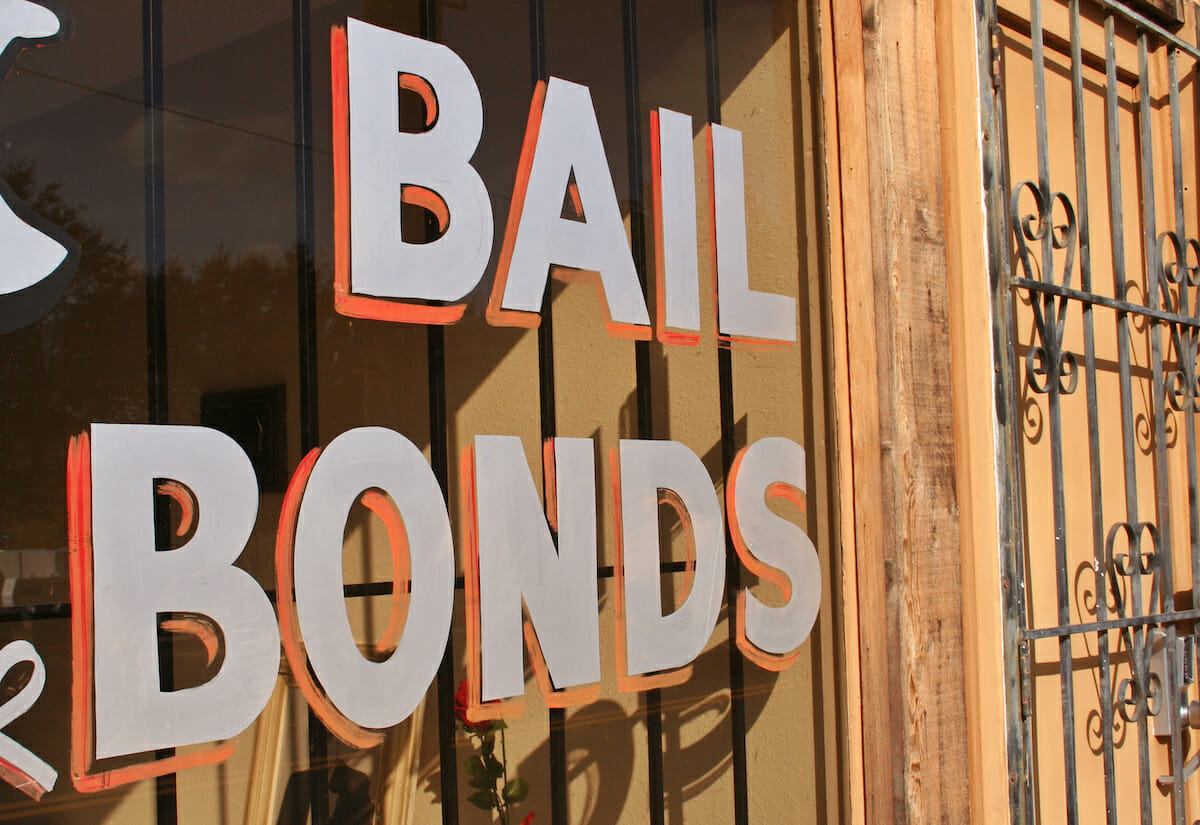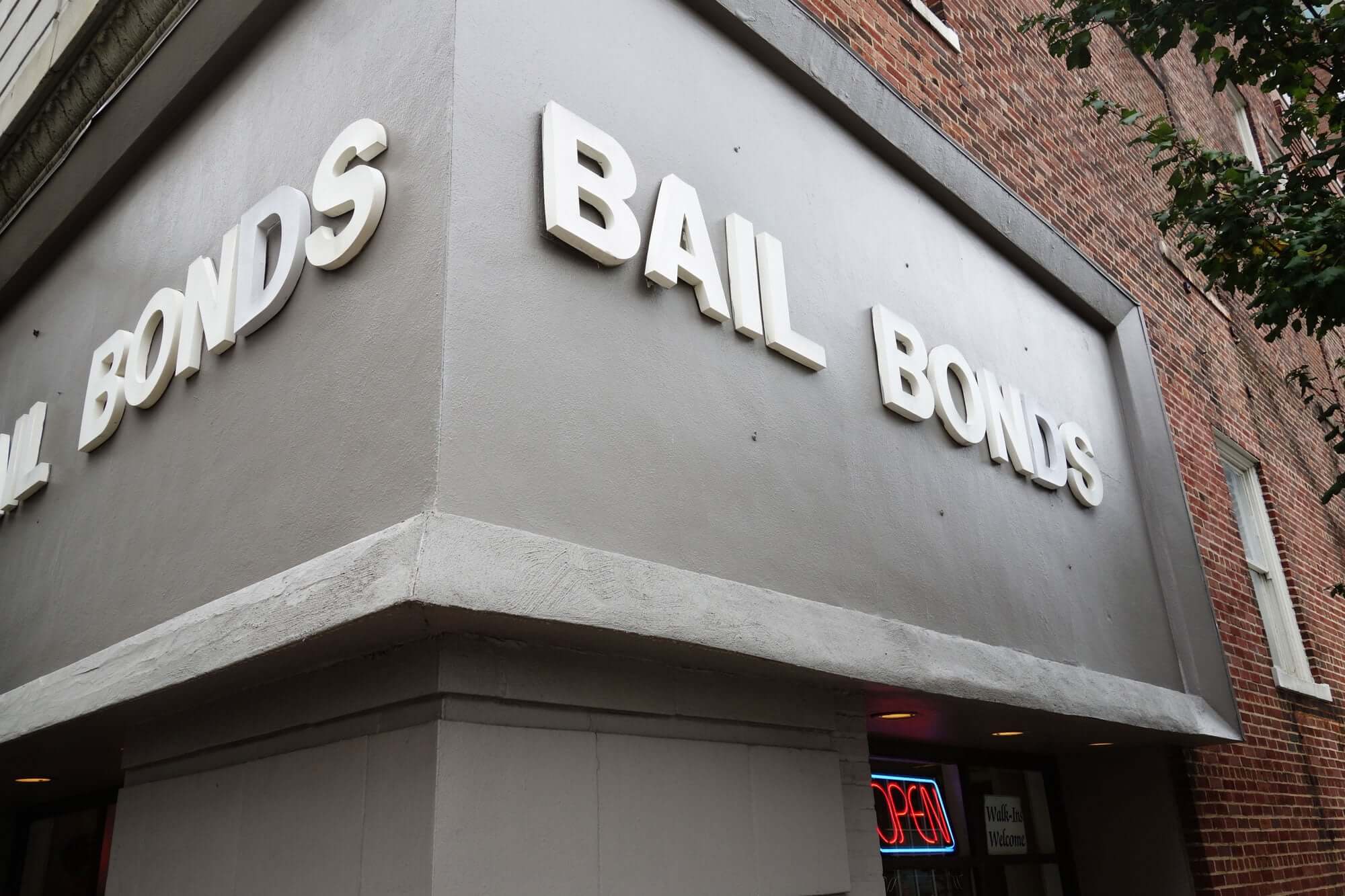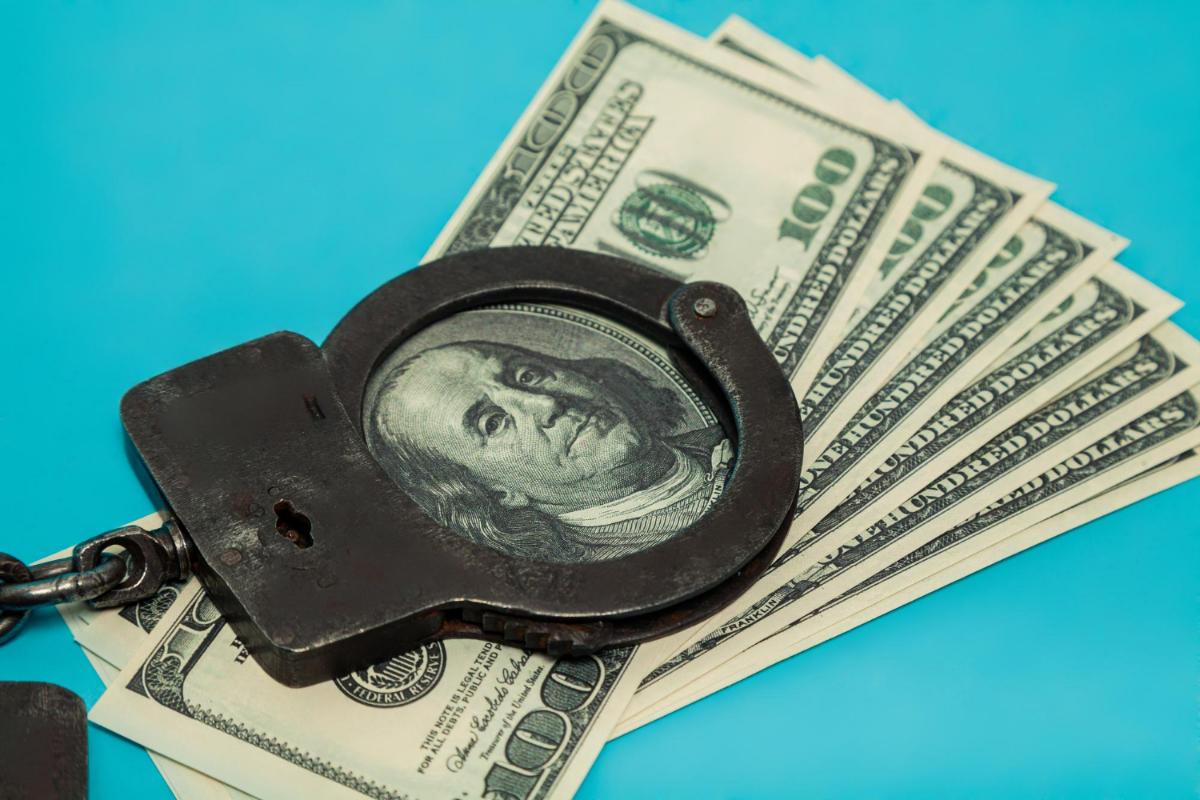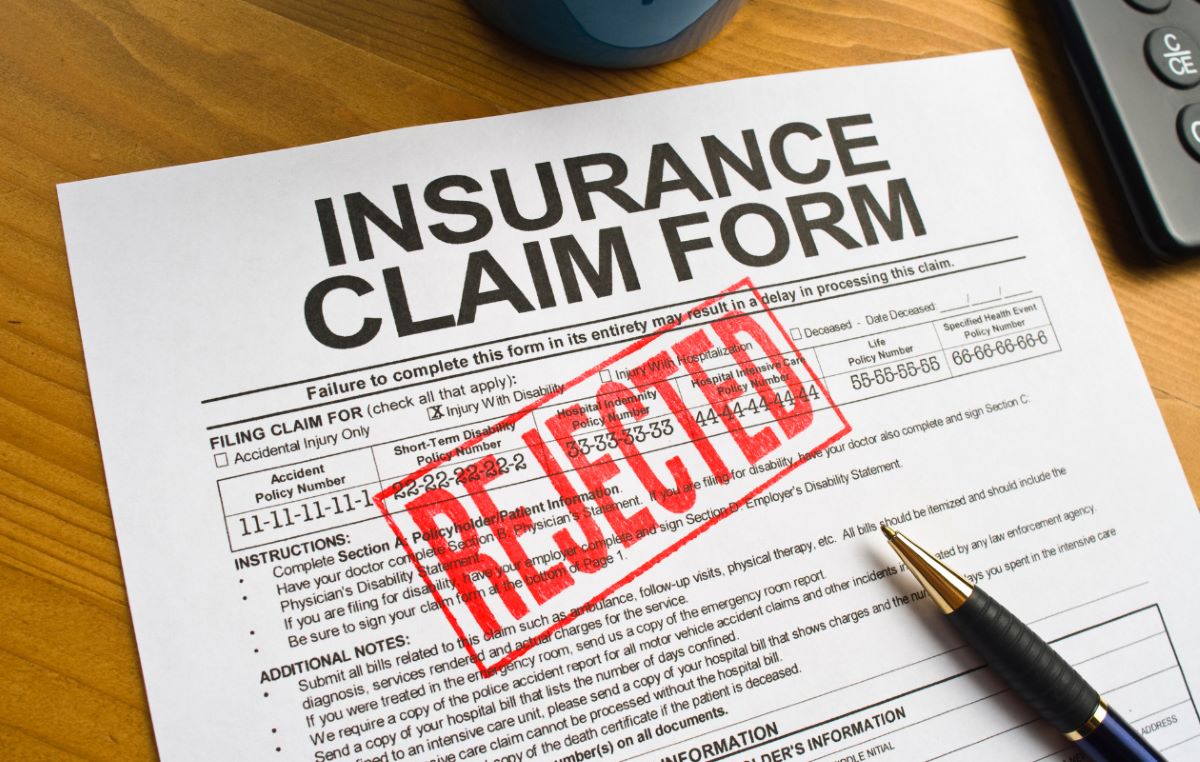

Finance
How Much Are Bail Bonds
Published: November 3, 2023
Looking for information on bail bonds? Find out how much bail bonds typically cost and get expert advice on financing options for bail at [Title].
(Many of the links in this article redirect to a specific reviewed product. Your purchase of these products through affiliate links helps to generate commission for LiveWell, at no extra cost. Learn more)
Table of Contents
Introduction
Getting arrested can be a distressing experience, not just for the person involved but also for their loved ones. In such situations, bail bonds can provide a lifeline by securing the release of the accused while awaiting trial. However, many people are unfamiliar with how bail bonds work and the costs associated with them. This article aims to demystify the world of bail bonds and shed light on the intricacies of the process.
Bail bonds are essentially a form of insurance that allows defendants to be released from custody while their legal proceedings are ongoing. By posting a bail bond, a professional bondsman assumes the responsibility of ensuring that the defendant appears in court as scheduled. It can be thought of as a financial agreement between the court and the bondsman, with the latter guaranteeing the full bail amount if the defendant fails to comply with the terms.
Understanding the mechanics of how bail bonds work is crucial. When a person is arrested, a bail amount is set by the court according to the severity of the alleged offense. Typically, this amount is quite substantial and beyond the immediate financial reach of most people. Bail bonds come into play by allowing individuals to pay a percentage of the total bail amount, usually 10% (although this varies by state), to the bondsman. The bondsman will then cover the remaining amount on behalf of the defendant.
What are Bail Bonds?
Bail bonds are a legal agreement that allows defendants to secure their release from jail while awaiting trial. When a person is arrested, they are held in custody until their court date. However, bail bonds provide an alternative option. Rather than staying in jail, defendants can pay a percentage of their bail amount to a bail bondsman, who will then post the full bail amount on their behalf.
The purpose of bail bonds is to ensure that defendants show up for their court appearances. By providing a financial incentive, it reduces the likelihood of individuals fleeing or evading the legal system. If the defendant fails to appear in court as required, the bail bond can be forfeited, and the bondsman may be responsible for covering the full bail amount.
Bail bonds are typically obtained through a bail bonds agency. These agencies are licensed and regulated by the state and employ professional bail bondsmen who have experience navigating the legal system. When a defendant contacts a bail bondsman, they will be required to provide details about the charges, the bail amount, and any other pertinent information.
To obtain a bail bond, the defendant or their family will need to pay a fee, generally around 10% of the total bail amount. This fee is non-refundable and serves as the bondsman’s compensation for taking on the risk and responsibility of ensuring the defendant’s appearance in court. The bondsman will also require collateral, such as property or assets, to secure the bond.
It’s important to note that not all defendants are eligible for bail bonds. In some cases, the court may deem the defendant a flight risk or a danger to the community and deny bail. However, for those who meet the eligibility requirements, bail bonds provide a practical solution to secure temporary freedom while awaiting trial.
How do Bail Bonds Work?
Bail bonds work by allowing individuals who have been arrested and jailed to secure their release before their court trial. Instead of paying the full bail amount set by the court, which can be quite substantial, defendants can enlist the help of a bail bondsman. The bondsman will post the full bail amount on behalf of the defendant, guaranteeing their appearance in court.
The process of obtaining a bail bond starts with the defendant or their loved ones contacting a bail bonds agency. The agency will gather information about the charges, the bail amount, and any other relevant details to evaluate the risk and determine the terms of the bond. Once the terms are agreed upon, the defendant or their family will need to provide a fee, typically around 10% of the total bail amount.
It’s important to understand that this fee, often referred to as the “premium,” is non-refundable regardless of the trial outcome. It serves as the bondsman’s payment for their services and assuming the risk of ensuring the defendant’s appearance in court. In addition to the premium, the bondsman may also require collateral, such as property or assets, to secure the bond.
Once the bail bond has been secured, the bondsman will pay the full bail amount to the court, and the defendant will be released from custody. However, there are conditions that the defendant must adhere to while out on bail. These conditions typically include appearing in court for all scheduled hearings and avoiding any further legal trouble.
If the defendant fails to comply with these conditions and misses a court appearance, it can result in serious consequences. The court may issue a bench warrant for their arrest, and the bail bond could be forfeited. In such cases, the bondsman may employ bounty hunters to locate and apprehend the defendant to minimize their financial loss.
It’s important to note that bail bonds vary in terms of jurisdiction and legal requirements. Different states have different regulations governing bail bond processes, fees, and collateral requirements. Therefore, it’s crucial to consult with a reputable bail bonds agency familiar with the local laws and procedures.
Costs Associated with Bail Bonds
When it comes to bail bonds, there are several costs involved that defendants and their families need to be aware of. Understanding these costs is crucial to make informed decisions and avoid any financial surprises during the bail process.
The primary cost associated with bail bonds is the premium. The premium is the fee charged by the bail bondsman for their services and is usually a percentage of the total bail amount, typically around 10%. For example, if the bail amount is set at $10,000, the premium would be $1,000. It’s important to note that this fee is non-refundable, regardless of the outcome of the trial.
In addition to the premium, there may be other expenses involved. One such expense is collateral. The bondsman may require collateral to secure the bond, especially for larger bail amounts. Collateral can be in the form of property, vehicles, or other valuable assets. If the defendant fails to appear in court, the collateral may be forfeited by the bondsman.
Another potential cost to consider is the cost of attending court hearings. While out on bail, defendants are required to appear in court for their scheduled hearings. This may involve travel expenses, such as transportation and accommodation, especially if the court is located far away from the defendant’s residence. It’s important to budget for these costs, especially in cases that may require multiple court appearances over an extended period.
It’s worth mentioning that some bail bond agencies may have additional fees or charges. These fees could be related to administrative costs, electronic monitoring if required, or other services provided by the agency. It’s essential to ask the bondsman upfront about any potential additional fees to avoid any surprises later on.
Lastly, it’s important to consider the potential risk of losing the entire bail amount. If the defendant fails to appear in court or violates the terms of their release, the bail bond can be forfeited, and the full bail amount may need to be paid. This risk reinforces the importance of complying with all court requirements and maintaining open communication with the bondsman throughout the legal process.
By understanding the costs associated with bail bonds, defendants and their families can make informed decisions and plan accordingly to secure their release while minimizing financial strain. Consulting with a reputable bail bonds agency and carefully reviewing all terms and conditions can help ensure a smooth and transparent process.
Factors that Affect Bail Bond Costs
The cost of a bail bond can vary depending on a variety of factors. Understanding these factors can help defendants and their families anticipate and plan for the expenses associated with obtaining a bail bond. Here are some of the key factors that can affect bail bond costs:
- Bail Amount: The primary factor that influences the cost of a bail bond is the total amount of bail set by the court. Bail amounts can range from a few hundred dollars to thousands or even millions of dollars, depending on the severity of the charges. Bail bond agencies typically charge a percentage of the bail amount as their fee, usually around 10%. Therefore, the higher the bail amount, the higher the cost of the bond.
- State Regulations and Fees: Bail bond costs can also be impacted by state regulations and fees. Each state has its own rules and regulations governing the bail bond industry, including the maximum allowable premium that bondsmen can charge. Some states may have set limits on how much bail bond agencies can charge, while others may have additional fees or taxes imposed.
- Collateral Requirements: In certain cases, bail bond agencies may require collateral to secure the bond. The value and type of collateral can influence the cost of the bond. For higher bail amounts or if the defendant is considered a higher risk, the agency may require more valuable assets as collateral, which can increase the overall cost.
- Criminal History: A defendant’s criminal history can also impact the cost of a bail bond. If a person has a prior record or is considered a flight risk, the bail bond agency may assess a higher premium to offset the increased risk. On the other hand, individuals with a clean record and strong ties to the community may be eligible for lower bond rates.
- Availability of Collateral: The availability of suitable collateral can affect the cost of a bail bond. If the defendant or their family is unable to provide collateral that meets the requirements of the bail bond agency, it may result in a higher premium or additional fees.
- Financial Stability: The financial stability and creditworthiness of the person seeking the bail bond can also be a factor. The bail bondsman may take into consideration the ability to pay the premium and any potential risk of non-payment when determining the cost of the bond.
It’s important to note that these factors can vary from case to case and from state to state. Consulting with a professional bail bondsman and discussing the specific circumstances can provide clarity on the costs involved and help defendants and their families make informed decisions.
Average Bail Bond Fees
The cost of a bail bond is typically calculated as a percentage of the total bail amount set by the court. While the exact percentage can vary depending on the jurisdiction and specific circumstances of the case, the average bail bond fee is generally around 10% of the bail amount.
For example, if the bail amount set by the court is $10,000, the average fee to obtain a bail bond would be approximately $1,000. This fee serves as the non-refundable premium for the bail bondsman’s services and assumes the risk associated with ensuring the defendant’s appearance in court.
It’s important to note that this 10% fee is not a standard across all jurisdictions and cases. Bail bond fees can range from 8% to 15% or higher, depending on various factors. State regulations, local market conditions, the severity of the charges, and the defendant’s history can all impact the specific fee charged by a bail bondsman.
In some cases, the bail bond fee may be negotiable, especially if the defendant has strong ties to the community, has a clean criminal record, or can provide substantial collateral. It’s worth discussing any possible negotiation with the bail bondsman to explore potential options for reducing the overall cost.
It’s important to be cautious of bail bond agencies that offer significantly lower fees than the industry average. While cost is a factor to consider, it’s crucial to work with a reputable and licensed bail bondsman who follows legal and ethical standards. Choosing a trustworthy agency rather than solely focusing on the lowest fees can provide peace of mind and ensure a smooth bail bond process.
In addition to the bail bond fee, it’s important to be aware of any additional costs that may arise. These costs can include administrative fees, electronic monitoring fees, or other charges imposed by the bail bond agency. It’s recommended to discuss these potential additional expenses upfront with the bondsman to ensure a clear understanding of the overall costs involved.
By understanding the average bail bond fees and considering the specific circumstances of the case, defendants and their families can budget accordingly and make informed decisions when seeking a bail bond. Consulting with a licensed bail bondsman and asking for a breakdown of the costs can help avoid any surprises and ensure a transparent bail bond process.
Additional Expenses to Consider
When considering obtaining a bail bond, it’s important to take into account additional expenses that may arise throughout the legal process. While the primary cost is the bail bond fee, there are other factors that defendants and their families should consider to avoid unexpected financial burdens.
One potential expense to be aware of is the cost of hiring legal representation. It is crucial to have competent legal counsel to navigate the complexities of the legal system and ensure the best possible outcome. Legal fees can vary depending on the attorney’s experience, reputation, and the complexity of the case. It’s advisable to research and consult with several attorneys to estimate the potential costs involved.
Another expense to consider is transportation and accommodation costs for court appearances. Depending on the distance between the defendant’s location and the court, attending hearings may require travel expenditures. It’s important to budget for these costs, especially if the legal proceedings are expected to extend over a significant period.
If the defendant is required to wear an ankle monitor or participate in a supervised release program, there may be additional costs associated with electronic monitoring. These costs can include installation fees, monthly monitoring fees, and any necessary equipment or technology. It’s essential to inquire about these potential expenses to have a clear understanding of the financial obligations.
In some cases, defendants may be required to undergo drug testing or counseling as part of their bail conditions. These additional services can come with their own associated costs. It’s important to inquire about any potential requirements and the associated fees to plan accordingly.
It’s also worth considering the financial implications of potential missed work or loss of income during the legal proceedings. Court appearances, meetings with attorneys, and other legal obligations may require defendants to take time off from their employment. Understanding the potential income loss and making necessary financial arrangements can help alleviate any additional stress.
It’s crucial to have open and transparent communication with the bail bondsman regarding any potential additional expenses. Discussing all the details of the case, including any anticipated costs, can ensure a comprehensive understanding of the financial obligations throughout the legal process.
By taking into account these additional expenses, defendants and their families can better plan financially and make informed decisions about their bail options. Consulting with legal professionals and bail bond agents can provide valuable insights and help navigate the financial aspects associated with the legal proceedings.
Ways to Reduce Bail Bond Costs
Bail bond costs can be a significant financial burden, but there are several strategies that defendants and their families can employ to help reduce these costs. By exploring different avenues and considering the specific circumstances of the case, it’s possible to minimize the overall expenses associated with obtaining a bail bond.
1. Negotiate the Bail Bond Fee: While not all bail bond agencies are open to negotiation, it’s worth discussing the possibility of reducing the premium with the bondsman. Factors such as strong community ties, a clean criminal history, or the availability of substantial collateral can potentially lead to a lower fee.
2. Seek Legal Representation: Having a skilled attorney can be instrumental in navigating the legal process effectively. They can potentially negotiate for a lower bail amount or argue for alternative release options that do not require a bail bond. A knowledgeable and experienced attorney could help reduce the overall cost of obtaining a bail bond.
3. Provide Collateral: Offering valuable collateral can sometimes lead to a reduction in the premium charged by the bail bond agency. If the defendant or their family has assets that can be used as collateral, it can provide assurance to the bondsman and potentially result in a lower fee.
4. Explore Pretrial Release Programs: Some jurisdictions offer alternatives to traditional bail bonds through pretrial release programs. These programs allow defendants to be released without the need for a bond, often with specific conditions and supervision. Inquire about the availability of such programs and eligibility criteria that may help reduce bail bond costs.
5. Consider Bail Reduction Hearing: In some cases, it may be possible to request a bail reduction hearing. This involves presenting your case and arguing for a lower bail amount based on various factors such as financial circumstances, ties to the community, or lack of flight risk. If successful, a reduced bail amount would result in a lower premium for the bail bond.
6. Review Payment Options: Bail bond agencies may offer flexible payment plans to ease the financial burden. Discuss payment options with the bondsman to determine if installment plans or other arrangements are available. However, it’s important to remember that the full premium must be paid, regardless of the payment schedule.
It’s also crucial to do thorough research and choose a reputable bail bond agency. Working with a trusted professional will ensure a transparent and fair process, and may provide additional opportunities to explore cost-saving options.
Remember, each case is unique, and the availability of these strategies may vary depending on the jurisdiction and specific circumstances. Consulting with legal professionals and experienced bail bond agents can provide valuable guidance and help identify the most effective approaches to reduce bail bond costs and alleviate financial strain.
Conclusion
Navigating the world of bail bonds can be a complex and financially challenging endeavor. Understanding the ins and outs of bail bonds, the associated costs, and potential strategies to reduce those costs is crucial for defendants and their families. By being informed and proactive, individuals can successfully secure their release while minimizing the financial strain.
Bail bonds provide a lifeline for those facing arrest, allowing them to be temporarily released from custody while awaiting their court proceedings. However, it’s important to recognize that bail bond fees can vary depending on multiple factors, including the bail amount, the state regulations, and the defendant’s specific circumstances.
To reduce bail bond costs, negotiating the bond fee, seeking legal representation, exploring alternative release options, offering collateral, and considering payment plans are all effective strategies. These tactics can potentially lead to lower premiums and alleviate some of the financial burdens associated with obtaining a bail bond.
It is crucial to work with a reputable bail bond agency that operates within the legal framework and adheres to ethical practices. Choosing a trustworthy professional will ensure a transparent and fair process, providing peace of mind during what can be a challenging and stressful time.
In conclusion, understanding the intricacies of bail bonds, exploring cost-reducing strategies, and seeking professional advice are all crucial steps in minimizing bail bond costs. By taking a proactive approach and making informed decisions, defendants and their families can navigate the legal process with greater ease and financial stability.
Remember, every case is unique, and consultation with legal professionals and experienced bail bond agents is essential for tailored guidance. By following these guidelines, individuals can effectively manage their bail bond costs and focus on addressing their legal matters with confidence.














